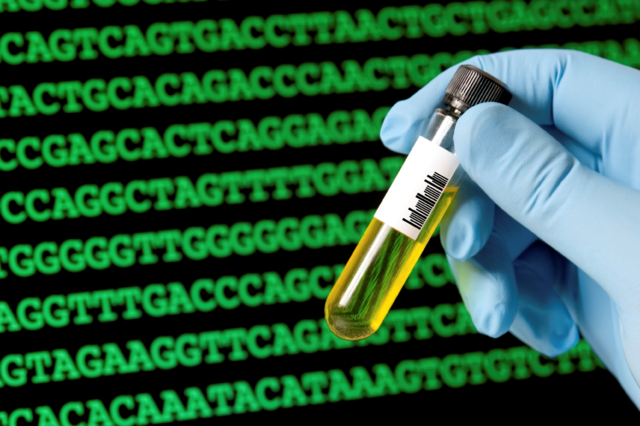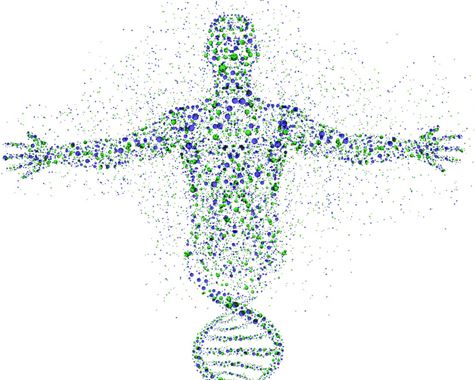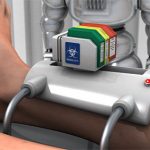Genetic Testing Innovations
Genetic testing is quickly becoming a cornerstone of healthcare, with new medical technologies and innovations enhancing how scientists work with genetics. Gene therapy, simplified genetic tests, and analysis of fully sequenced genomes are just some of the genetic testing innovations improving healthcare today and in the future.

The global genetic testing market hasrisen over the past few years. This rise is fueled by the increasing prevalence of genetic disorders and growing awareness about the benefits of genetic testing. In fact, the global genetic testing market will likely reach 22.834 billion USD in 2024, registering 11.50 percent CAGR throughout the assessment period (2019-2024), according to Market Research Future.
Genetic testing involves a set of laboratory tests that study the patient’s genetic makeup, and identify any gene mutations or alterations in the patient’s DNA that could potentially lead to the development of genetic disorders. Healthcare professionals can use genetic tests to confirm or rule out a suspected genetic disorder. Genetic testing can also help determine the probability that an individual will develop a genetic disorder or pass one down to the next generation.
Types of Genetic Testing and Innovations
As of August 2017, there were about 10,000 unique genetic test types, and approximately 75,000 genetic tests on the market including direct-to-consumer (DTC) genetic tests like 23andMe – more are under development every year. The general types of genetic tests include:
Newborn testing – used just after birth to detect genetic disorders early, when they are easiest to treat
Diagnostic testing – identifies or rules out a specific genetic condition
Carrier testing – identifies people who carry one copy of a gene mutation that, when coupled with another gene with the same mutation, causes a genetic disorder; this test can help couples determine their risk for having a child with a genetic disorder
Prenatal testing – offered during pregnancy if there is a chance that the baby will have a genetic disorder, prenatal testing detects changes in a fetus’s genes prior to birth
Pre-implantation testing – used to detect changes in embryos created through in-vitro fertilization or other assisted reproductive technology to reduce the risk of having a child with a specific genetic disorder
Predictive and presymptomatic testing – detect gene mutations associated with conditions that develop after birth or even later in life; helpful for people whose family member has a genetic condition, but who have no signs or symptoms of the condition at the time of testing
Forensic testing – uses DNA sequences to identify someone for legal purposes, such as identifying victims of a crime or catastrophe, rule out or implicate a suspect in a crime, or to establish paternity or other biological relationship
Genetic Testing Delivery Systems
Innovations in genetic testing involve new delivery systems, finding new genetic variants, and finding new uses for genetic therapies. Researchers from Fred Hutchinson Cancer Research Center recently started using gold nanoparticles as a scalable delivery vehicle for their CRISPR systems, for example, instead of the “old fashioned” approach of using electric shock or viral vectors to deliver genetic editing tools to DNA.

Another group of researchers analyzed coding genes from nearly 46,000 people to identify four genes that contained rare genetic deviations linked to type 2 diabetes. Pharmaceutical companies could use these genes and the proteins they encode as targets for new diabetes medications and treatments.
Doctors in the United States have begun using CRISPR gene-editing therapy to treat cancer patients for the first time. The University of Pennsylvania is following the first two patients in the country to undergo the new therapy – one with sarcoma and one with multiple myeloma, whose cancers did not respond to conventional treatment.
Genetic testing could even help scientists understand COVID-19; they currently use genetic testing known as RNA or PCR tests, to detect the disease.

The tsunami of gene therapy clinical trials underway right now will create a flood of data, particularly in oncology. Oncology is an area that currently represents a quarter of Phase I and Phase II trials. Much of the push to expand genetic testing will come from the consumers themselves. Patients are currently pushing to expand genetic testing beyond its current confines of rare diseases to cover common conditions, such as Parkinson’s disease. In cases in which insurance does not cover the costs of these tests, patients may seek to enroll in clinical trials. When genetic testing is not affordable or accessible, consumers will turn to at-home genetic testing.
FRANK MAGLIOCHETTI
Frank Magliochetti owes his professional success to his expertise in two areas: medicine and finance. After obtaining a BS in pharmacy from Northeastern University, he stayed on to enroll in the Masters of Toxicology program. He later specialized in corporate finance, receiving an MBA from The Sawyer School of Business at Suffolk University. His educational background includes completion of the Advanced Management Program at Harvard Business School and the General Management Program at Stanford Business School. Frank Magliochetti has held senior positions at Baxter International, Kontron Instruments, Haemonetics Corporation, and Sandoz. Since 2000, he has been a managing partner at Parcae Capital, where he focuses on financial restructuring and interim management services for companies in the healthcare, media, and alternative energy industries. Last year, he was appointed chairman of the board at Grace Health Technology, a company providing an enterprise solution for the laboratory environment. Frank is also CEO of ClickStream, ClickStream’s business operations are focused on the development and implementation of WinQuik™, a free to play synchronized mobile app and digital gaming platform. The platform is designed to enable WinQuik™ users to have fun, interact and compete against each other in order to win real money and prizes. Twitter at @ClickstreamC and @WinQuikApp.
Genetic Industry
Frank was appointed Chairman and Chief Executive Officer at Designer Genomics International, Inc. The Company has accumulated a growing body of evidence that highlights a link between alterations in the immune and inflammatory systems and the development of chronic human disease. The Company is visionary and has established itself as a leader in the field of inflammatory and immune genetic DNA and RNA biomarkers that play a causative role in debilitating conditions, such as atherosclerosis/heart disease, diabetes, arthritis, inflammatory bowel disease, post-traumatic stress disorders (PTSD) and cancer.
A proprietary state-of-the art data mining bioinformatics program, called ‘cluster analysis’ will be used to measure disease development susceptibility with potential for earlier diagnosis and intervention. The company is developing a healthcare program based on its proprietary genetic panels that will allow people to be their own healthcare advocate and take an active role in their health status as well as longevity.
Frank Magliochetti News is developing Genetic Innovation News.com the site is devoted to genetic innovations; we encourage contributors – the site wants to broadcast your news, discoveries,and innovations.

Managing Partner
Parcae Capital
www.parcaecapitalcorp.com
www.frankmagliochetti.com
SOURCES:
https://www.marketresearchfuture.com/reports/genetic-testing-market-2009
https://www.ncbi.nlm.nih.gov/pmc/articles/PMC5987210
https://www.genome.gov/dna-day/15-ways/direct-to-consumer-genomic-testing
https://ghr.nlm.nih.gov/primer/testing/uses
https://www.nature.com/articles/s41563-019-0385-5
https://www.nature.com/articles/s41586-019-1231-2

















